
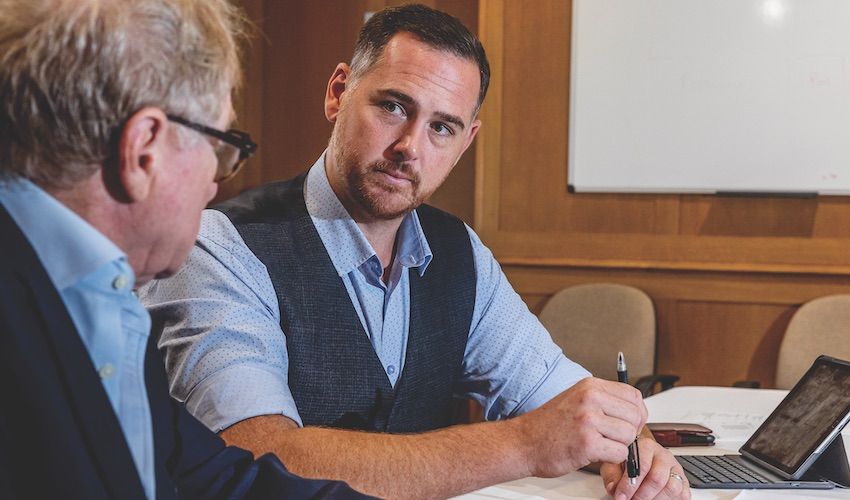
Amid severe recruitment issues, increasing alcohol taxes, Brexit, a weak pound and competition from other locations... Who would choose hospitality as a career?
Well, Simon Soar would. For 18 years, he has been in the industry and as now at the helm of the Jersey Hospitality Association, which represents 5,000 staff.
He told Express why he thrives on the variety, and the challenge, of hospitality...
What’s your idea of the perfect bacon sandwich? Is the bacon smoked, streaky, crispy? Sandwich, toast, soft roll or Portuguese roll? What kind of sauce? Butter, margarine or neither? Simon Soar says he could ask 20 people and get 20 different answers because everybody’s taste is just a little different.
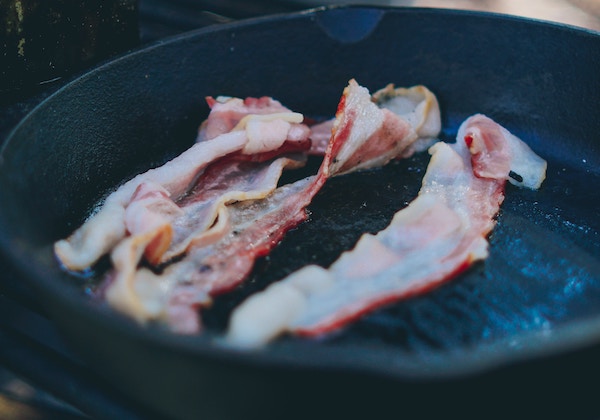
Pictured: Everybody’s taste is just a little different, especially when it comes to bacon.
Referring to the Bacon Sandwich Effect, he says it’s the same when people go out. Everyone’s tastes are different. “When you have an industry that is as vibrant as ours, people can go out and find what they actually want, from Michelin starred restaurants to the smallest beach kiosks. That’s what I love about our offering in Jersey. We have an island filled with boutiques, with independent passionate owners.”
As Chief Executive of the Jersey Hospitality Association, Simon looks after 200 members and represents nearly 5,000 staff.
He has spoken out in recent weeks about the potential impact of a ‘no deal’ Brexit. At the end of August, after the British Prime Minister Boris Johnson announced his decision to suspend parliament, Simon warned that a ‘no deal’ Brexit could be the final nail in the coffin for hospitality. It would mean that the crucial flow of European seasonal workers would simply stop with immediate effect.
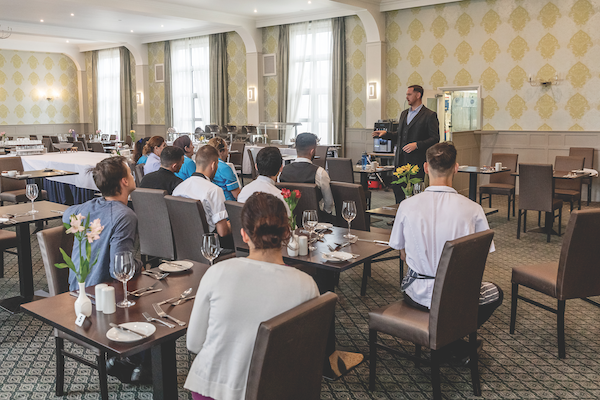
Pictured: As Chief Executive of the Jersey Hospitality Association, Simon looks after 200 members and represents nearly 5,000 staff.
“I have not wanted to scaremonger, but we need a bit of realism in what is about to occur. There will be a new policy on how people can cross the border but how people will come into the Island has yet to be decided.
“We are seeing a decrease in people taking positions in Jersey. This year, we had in excess of 400 seasonal vacancies. We’ve already seen places closing on some days because they don’t have enough staff.
“A lot of my members have their general managers, their owners, having to do things like change beds because they haven’t got enough staff. If we double the position we’re in, that’s not going to be sustainable for them.
“A very real outcome is that the pound is going to suffer. If the pound suffers, where’s the value for someone to come and work here?”
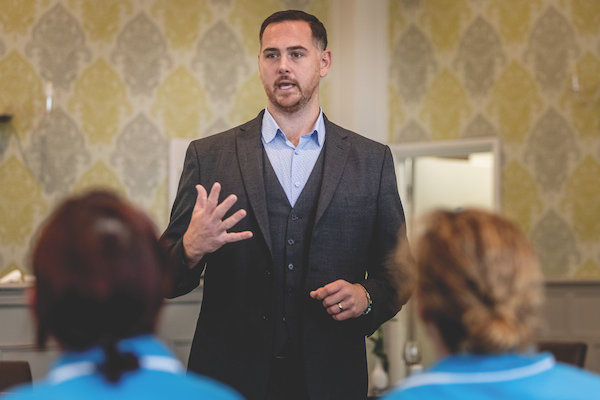
Pictured: Simon admits that he has had some sleepless nights when considering the worst case scenario following a no deal Brexit.
Simon says that an extra 400 vacancies next year is a “good case scenario”, one that would not completely destroy the industry. “What we will likely see is a couple of venues close and that will release some staff for other venues.
“I’m trying to be optimistic and say we’re going to have double the vacancies, we’ll lose a couple of members and hopefully we will balance it out. That would be realistic.”
He admits that he has had some sleepless nights when considering the worst case scenario, one where there is a hard close on the borders, with no deals in place as to how people can move around.
“If that happened and the Island could only get half of our seasonal workers in, that would be unsustainable. As many as half our venues would close, wages would be driven up but so would costs. What would the impact be on unemployment and house prices?
“Your £10 pizza or burger becomes £20. Does that then stop people going out?”
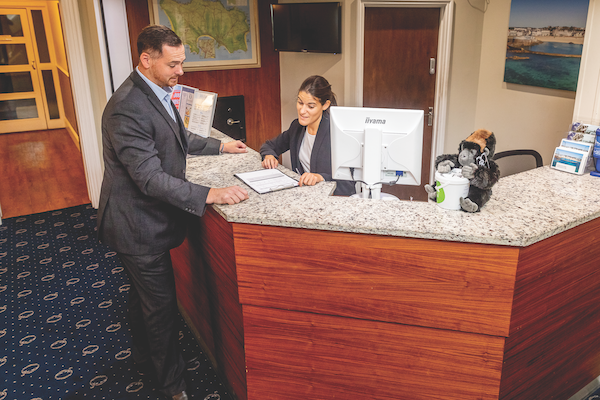
Pictured: The hospitality industry is looking at where their next recruitment pool is coming from.
The unknown, he says, is stopping current seasonal staff coming back next year. “If there’s no guarantee that you will have a job next year, why would you come back?” he asks.
There is so much uncertainty as to what will happen with Brexit that no one can really do much other than consider the options and wait.
“We are quite fortunate that the Home Affairs Minister granted 150 non-EU work permits this year. That has been a benefit to us. We haven’t used them all yet but we never expected to as it was a bit late in the season. I’m pretty sure I won’t have any permits come the spring.”
He adds that the industry is looking at where their next resource pool is coming from. That includes Kenya, where staff have been sourced for a few years now. Simon rates them highly.
The JHA work closely with the government on issues affecting the industry. In November the States will debate a proposition calling for a rise in alcohol duty.
“If spirits move up as they propose, 10% above the RPI, we will be 45% higher than UK spirit duty,” he says. “There is no justification for that.”
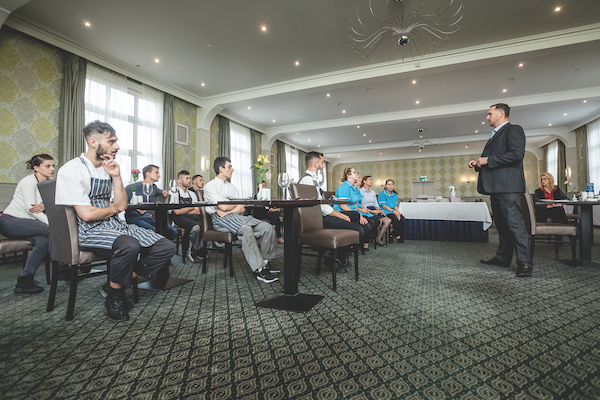
Pictured: The JHA are working with the government to update the liquor licensing law.
One argument put forward is that too many young people are taking to spirits. “In my mind that’s about education and controlling sales of alcohol to the youth.”
The JHA are also working with the government to update the liquor licensing law. “The last law was made in the 1970s and is comfortably 20 years out of date. We are trying to get a fair, balanced future-proofed law into place that works for both the government and the industry. We’re making some good headway at the moment. It’s about us understanding each other’s needs and finding that happy medium.”
Over coffee at Barista, we take a breather from the big issues. It’s evident that despite being in a high-pressure industry with some significant challenges, Simon thrives on his job.
“My every day is awesome,” he smiles. “There is no typical day and I love that. I deal a lot with Education and Skills Jersey, I’ll be talking to my members a lot about what can be small day-to-day issues, dealing with the media, lobbying, working on our social media, website and newsletters.”
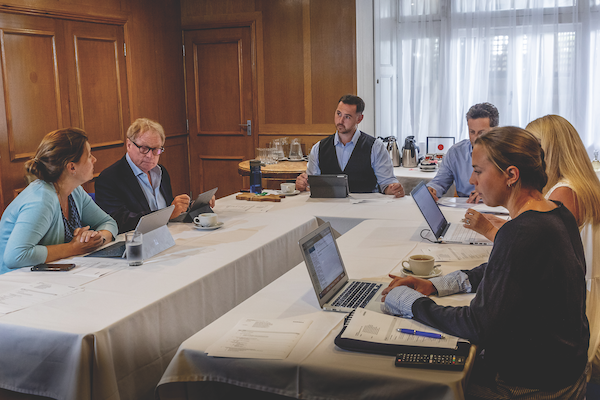
Pictured: “My every day is awesome,” Simon says. “There is no typical day and I love that."
He has been Chief Executive of the JHA for one year, having been promoted from manager last October. When Simon first joined the JHA he had recently opened two restaurants, Cheffins and Cow and Lobster, his son, Jackson, was just a year old and he found he was spending very little time with him.
“I love opening places but it’s hard work and when it comes to doing 90-hour weeks to open a restaurant, it’s physically and mentally exhausting. I feel like age must be catching up on me.” (He’s 35.)
Now, working from home on the outskirts of town, Simon is enjoying the freedom of working more flexible hours.
“I will always take a phone call. I will always check my email. I had two weeks off in the summer and there was a significant number of phone calls taken but I don’t mind. I’m the only full-time employee and I can’t turn around and say I’m not available. Our industry isn’t 9 to 5.”
He adds that he is fortunate that his wife Lyndsey, who works for Visit Jersey, is very understanding.
“I am Jersey-born. I am very proud of my island. On top of that I’m passionate about my industry and I care about the people who work in it.”

Pictured: Simon inadvertently fell into hospitality.
Simon admits that he inadvertently fell into hospitality. “I was all set to go to Loughborough University and then on to Sandhurst and the Royal Engineers, but at the last minute I wasn’t feeling ready for it. I threw on a backpack and went to Australia.
“Within a month or two I had started in a kitchen. I will never forget that first week. It was the most intense thing I had ever done, and I knew in that moment that’s what I wanted to do. I changed my visa to a student visa so I could train in Sydney as a chef.
“In this industry you get some of the biggest highs and lows because you’re dealing with people’s enjoyment, you’re creating experiences. You could create the best dish in the world but if it’s not in the right atmosphere or comes with the wrong service, it becomes bland.”
To unwind, Simon plays inline hockey (“seeing as the only ice over here is in G&Ts”), reading and cooking. He makes all his own bread, and Jackson, at two-and-a half, is already helping him in the kitchen, pouring and stirring.
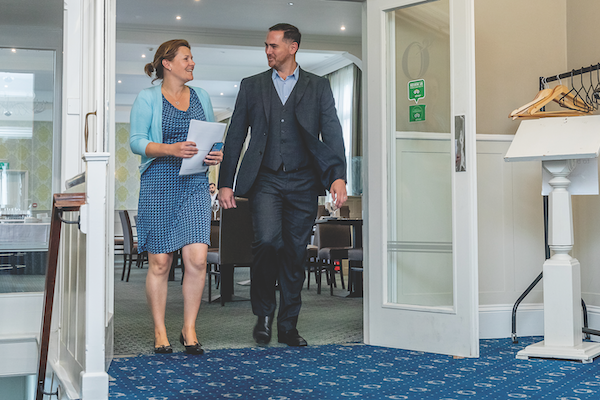
Pictured: “In this industry you get some of the biggest highs and lows because you’re dealing with people’s enjoyment, you’re creating experiences."
It’s not just pubs, cafes, restaurants and hotels that are members of the JHA. The association’s membership also includes wholesalers, tour guides and attractions.
“In their meetings you see the collective passion we have for this industry,” he says. “I deal every day with business owners or managers who don’t do this job because it pays a bill. They do it because they’re passionate about what they do.
“And one of the biggest sources of pride is doing what I can to help them. I feel blessed to be able to do that alone.”
After Australia, Simon gained experience in Brighton and learned the bar trade, specialising in cocktails. Once he was back in Jersey he helped open Wildfire and Tanguy’s, he was at the Grand when it got its fifth star, he spent some time with the Liberation Group in Guernsey, and he was Brand Development Manager with JJ Le Sueur.
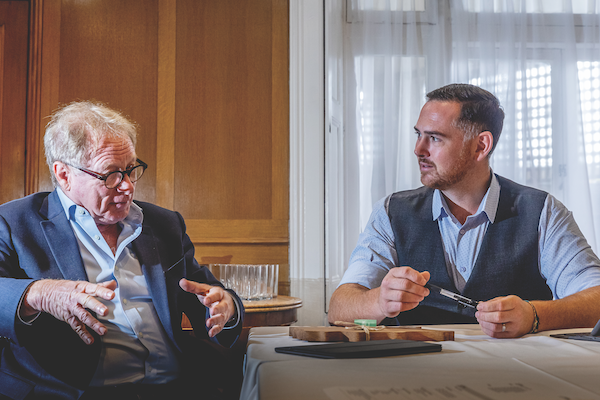
Pictured: Staffing Is the single biggest issue the hospitality faces.
With all that background, he has a real feel for what is currently going on in hospitality. Staffing is the single biggest issue it faces.
“We have seen an increase in the number of vacancies for a long time. We’ve also seen it become increasingly difficult to get skilled staff. It’s important to say though that this is a global issue. We need to bring in 1,600 seasonal workers every year just to cope with the summer.”
For many students in the Island, it’s common to have a summer job in a bar, cafe or restaurant.
“It teaches you customer service, it teaches you a bit of humility, hard work and a lot of life skills,” Simon says. “Everybody should have to do a couple of years in hospitality. You’d be amazed how that would change people’s views on things and how they talk to people.
“In terms of careers, everyone has different ideas of what they want to do but, like a bacon sandwich, there’s only one way to know what you want and that’s to try different ways of doing it.”
This article first appeared in Connect. Read the latest edition by clicking here.
Comments
Comments on this story express the views of the commentator only, not Bailiwick Publishing. We are unable to guarantee the accuracy of any of those comments.